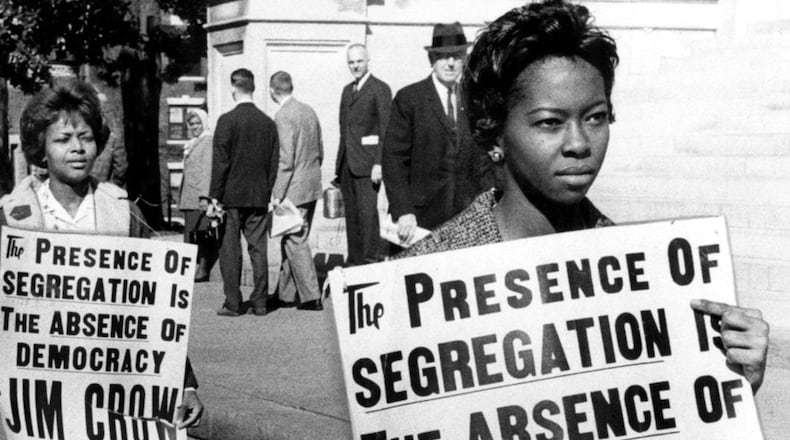Seventy years ago today, the U.S. Supreme Court made a simple but revolutionary proclamation on race: Separate is inherently unequal. Brown v. Board of Education marked the end of state-sanctioned segregated schools in the United States.
Brown has shaped the identity and opportunities of nearly three generations of Americans, redefining what it means to be a citizen of our multiracial democracy by debunking the premise that mandated separation by race is consistent with the constitutional principle of equal protection under the law. Implicit in this recognition is that Black students deserve equal access to education as part of their citizenship, and that good citizenship requires a quality education experience that respects the intelligence, dignity and humanity of all students.
But, decades later, the very systems that are responsible for upholding Brown’s ruling are actively reversing its promise of equalizing educational opportunity for all. Just as there was a massive resistance to the enforcement of Brown in school jurisdictions across the South decades ago, we are again witnessing a massive resistance to the education of not just Black students but all students. As is was after the Brown decision, this resistance is also rooted in a fear that education will lead to Black political empowerment.
Credit: Handout
Credit: Handout
Last year, the Supreme Court defied nearly 40 years of legal precedent by banning commonplace race-conscious admissions in higher education. The modest intervention of affirmative action addressed the same racial inequities that animated Brown. The campaign against affirmative action was led by an unrelenting and well-funded minority that has never believed in leveling a playing field warped by 400 years of racial inequity fueled by slavery, Black codes, Jim Crow, segregation, redlining, mass incarceration and other systems of structural racism, and they found a welcome audience in an increasingly conservative Supreme Court.
In K-12 districts across the country, we are witnessing a rejection of accurate history and the banning of books, resulting in the suppression of Black voices in schools and the absence of foundational truths in the teaching of U.S. history. According to the American Library Association, in 2023 more than 4,000 book titles in schools and libraries were challenged — a 65% increase from 2022. Forty-seven percent of the challenged titles from 2023 represent the voices and lived experiences of people of color and people who identify as LGBTQIA+.
The disempowerment of Black Americans is also reflected in the ongoing disparities in school funding. Black students are six times more likely than white students to attend a high-poverty school, and nearly 75% of Black K-12 students attend racially segregated schools. Like high-poverty schools, racially segregated schools are likely to have high levels of teacher turnover, inadequate facilities and fewer classroom resources, leaving many Black students behind.
Today at the Legal Defense Fund, where I lead a multidisciplinary team that uses the power of law to address racism in forms new and old, we continue bringing legal challenges to combat segregation. In the past four years alone, we have represented Black students who were placed in separate classrooms and denied participation in extracurriculars and graduation because of how they wore their natural hair; Black students who were denied access to facilities and resources equal to their white counterparts’; and students subjected to severe harassment and hostile environments because of their race.
The integration ushered in by Brown was made possible only because Black students and parents bravely stood up in the face of impossible odds. The collective action of these daring students and parents, alongside LDF founder Thurgood Marshall and other visionary LDF lawyers, led to a watershed moment in the trajectory of our democracy, cementing education as “the very foundation of good citizenship,” as Chief Justice Earl Warren wrote in the Brown opinion.
Warren also wrote in the opinion that “education is perhaps the most important function of state and local governments.” Therefore, we must have a similar sense of urgency as those brave parents and students who forced seismic societal change through Brown. As an exercise of the good citizenship that Brown exalted, it is critical that we not only vote at the national, state and local levels, but also that we vote in support of public education, equal opportunity and universal access to truthful and accurate information.
Brown is not just a history lesson; it remains a call to action. In this moment, when another watershed Supreme Court decision expanding education equity is not immediately in view, that work is at the ballot box, where we can force our own massive resistance to policies that seek to pull us backward.
Janai Nelson is president and director-counsel of the Legal Defense Fund.
About the Author
Keep Reading
The Latest
Featured




